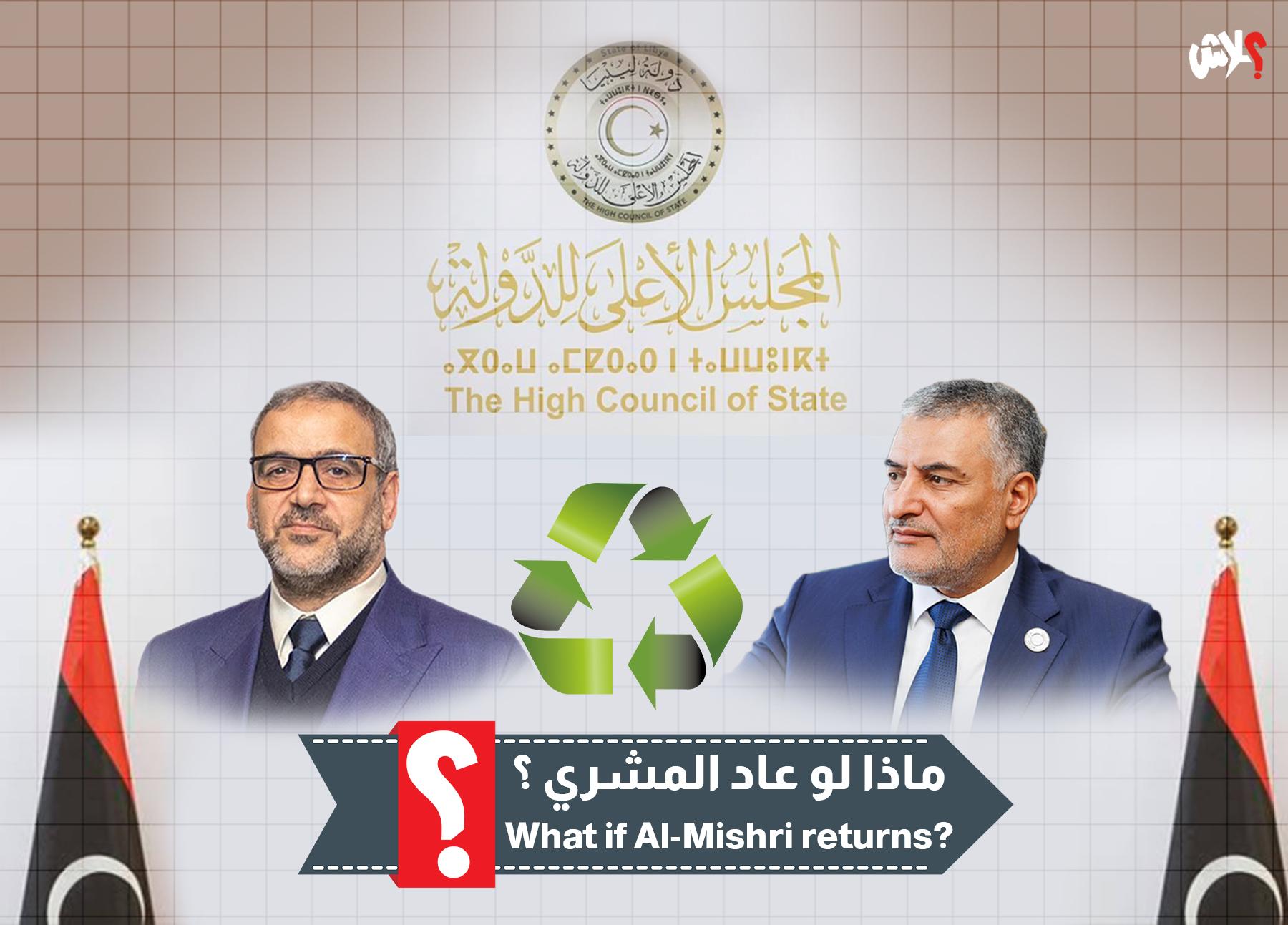What If Al-Mishri Returns?
Anyone who has been following the general situation in Libya over the past year knows how the political scene has been affected by Khalid Al-Mishri's absence from the political arena after losing the regular elections for the presidency of the High Council of State to the current president, Mohamed Takala. Some attribute this impact to the continued existence of the "Return of Life" government, as Al-Mishri had been, and presumably still is, advocating for the termination of this government on the grounds that it has not achieved the objectives it was appointed for, not to mention the expiration of the period it was supposed to adhere to as per the political agreement that established it.
This is evident from the unprecedented level of agreement reached between Aguila Saleh and Khalid Al-Mishri. Many believe that if Al-Mishri had succeeded in last year's elections for the presidency of the High Council of State, the "Return of Life" government would not have undertaken the Hajj pilgrimage to the holy land this year. However, Libya has taught us during these years of turmoil that its political landscape lacks clear features, and it is impossible to accurately predict political scenarios based on its events. This ever-changing situation is seen by some as potentially advantageous for Al-Mishri if he were to return as the president of the High Council of State.
Due to the political deadlock that Libya has been experiencing over the past year, the division in the executive authority, and the significant disagreement that seems unresolved by reconciliation envoys between Sadiq Al-Kabir, the head of the Central Bank of Libya, and Abdul Hamid Dbeibeh, in restoring their relationship, the government's financial operations have been severely constrained. This has resulted in excessive extravagance in state management, leading to a financial bottleneck, inflation, and an increase in the number of Libyans falling below the poverty line, according to recent studies conducted by the Faculty of Economics at Misrata University. This situation, alongside the reconstruction efforts by Hamad's government in eastern Libya, which followed the same path as Dbeibeh's government, relies on a golden rule: "replace concrete with dignity and a decent life." This approach is primarily supported by the eastern ruling family and Sadiq Al-Kabir's financial support in the east for over a year.
We cannot overlook the changes that have occurred within the United Nations mission, where the new envoy, Stephanie Williams, seems determined to bring about a change in Libya's political stalemate. Many believe that this change will occur at the level of the executive authority, and the emergence of a new government is very close compared to the previous period.
All these circumstances seem to favor, in one way or another, the role Al-Mishri could play if he returns to the presidency of the council. He could restore the agreement between the House of Representatives and the High Council of State and resume his efforts to end Dbeibeh's rule, as many observers suggest. If he returns now, the conditions appear more favorable for him than before.
This, however, depends on Al-Mishri's ability to rally votes around him in the High Council of State. Although many observers believe that Mohamed Takala will not be as strong a rival to Al-Mishri this time as he was previously, given Takala's relatively calm tenure, especially with the "Return of Life" government. Takala did not continue Al-Mishri's efforts in fostering agreement and communication between the two councils, and the issue of settling the executive authority during his term has been put on hold, leaving the High Council of State with no clear role in the political scene in Libya. Hence, Al-Mishri might be able to surpass him this time.
But what if there is another strong candidate facing Al-Mishri? Observers of the electoral process that brought Mohamed Takala know that it was based on the narrative of change, especially since Al-Mishri had spent years at the helm of the High Council of State. Council members were leaning towards the idea of change. This time, however, many observers believe that the members of the High Council of State are more inclined to elect someone who can restore the council's presence in the political arena. This can only happen in the Libyan context if the person has strong backing, such as tribal or regional support, providing them with enough protection to play a strong role in Libya's political theater, which is heavily influenced by power and money.
These criteria seem necessary for anyone who might face Al-Mishri in the upcoming elections, especially since Al-Mishri fully possesses these criteria. He has demonstrated this in all confrontations with the "Return of Life" government or security agencies like the Internal Security Agency. Therefore, the summary of the upcoming electoral scene for the presidency of the High Council of State is that Al-Mishri is effectively saying to all council members, "Bring out my equals from among my people."
Until that happens, or doesn't, do you know what happened in Najla Mangoush's investigations?

